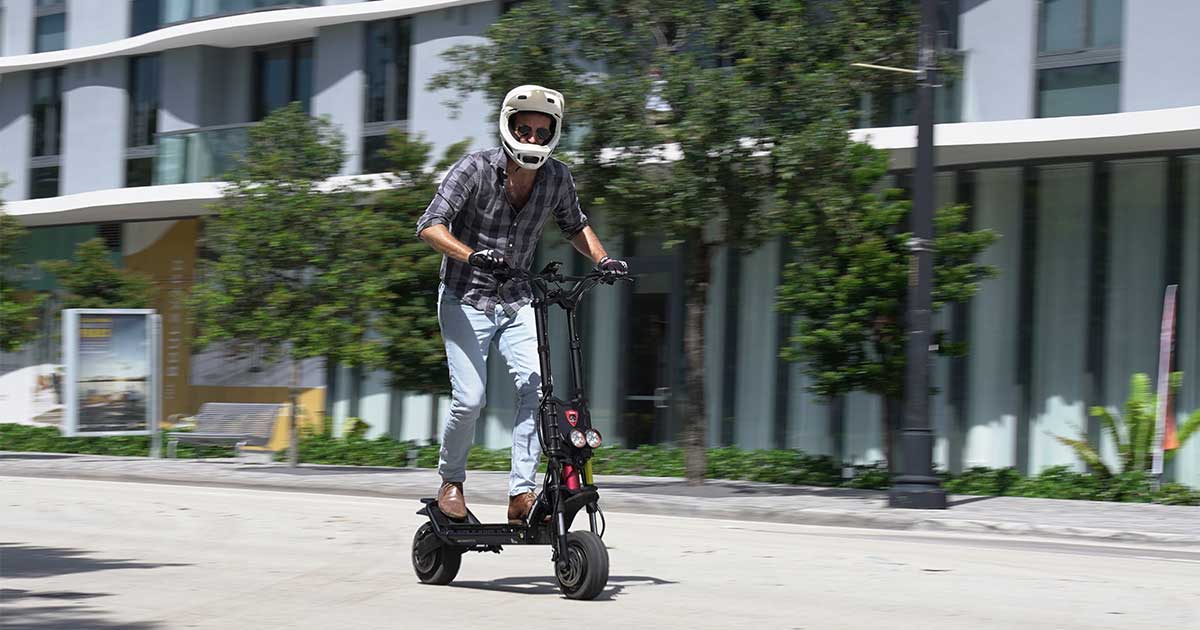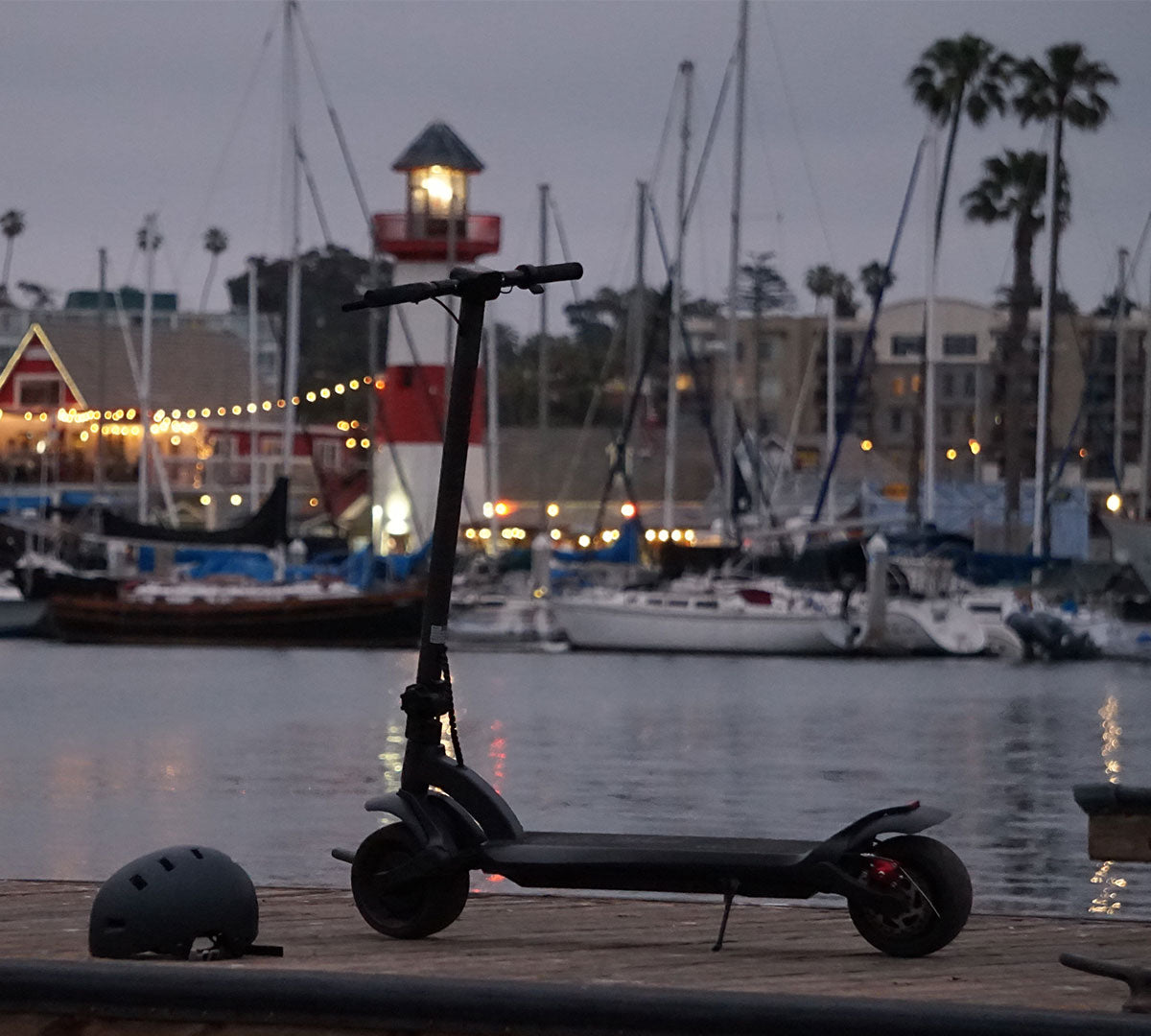Electric Scooters and the Fight Against Climate Change
- Read Time: 13 min
Explore the crucial role of electric scooters in combating climate change. From energy efficiency to government policies, learn how these eco-friendly vehicles contribute to a sustainable future.

Fighting Climate Change With E Scooters

Electric scooters represent more than just a trend in urban mobility. They're a forward leap in fighting climate change and greenhouse gas emissions.
As cities grapple with increasing carbon emissions and congested streets, e-scooters emerge as a sustainable transportation alternative.
By offering a green, efficient way to travel short distances, they reduce reliance on fossil fuel-powered vehicles. This shift not only promises cleaner air but also marks a small, yet significant step towards a more eco-friendly future in our daily commutes.
Electric Scooters and Sustainability
E-scooters are swiftly carving out a niche as an eco-friendly alternative to traditional vehicles, especially for short urban commutes.
Their electric propulsion means zero direct carbon dioxide emissions, a stark contrast to the pollution from gasoline-powered conventional vehicles.
By offering a practical solution for last mile connectivity, e-scooters not only minimize reliance on passenger cars and personal vehicles for short distances but also complement public transportation networks.
This shift to e-scooters significantly contributes to reducing overall carbon emissions in urban areas, playing a crucial role in the global effort towards sustainable living and environmental preservation.
Energy Efficiency

E-scooters and bikes stand out for their energy efficiency, significantly reducing the carbon footprint and climate impact of urban transportation.
Most other vehicles run on fuel, whereas e-scooters utilize electric power, which requires considerably less energy per mile traveled.
This fuel efficiency is evident in their ability to cover significant distances on a single charge, with a minimal environmental impact compared to most cars, i.e. lower emissions per mile traveled.
By replacing short car trips with scooter rides, cities can witness a substantial decrease in energy consumption and carbon emissions. This shift not only conserves energy but also contributes to cleaner air and a more sustainable urban environment.
Infrastructure for Sustainable Mobility

The development of infrastructure plays a pivotal role in promoting e-scooters as a sustainable mobility option. The establishment of a widespread charging infrastructure provides convenience and encourages more people to opt for e-scooters.
Additionally, dedicated lanes ensure safer, more efficient travel, free from the congestion of mixed traffic.
These lanes not only enhance rider safety but also increase the attractiveness of e-scooters as a regular commute option. A well-planned infrastructure that supports electric scooters contributes significantly to climate change mitigation by reducing or eliminating unnecessary dependency on cars, thereby cutting down carbon emissions and fostering a greener, cleaner urban environment.
Government Policies and Incentives
Government policies can be instrumental in promoting electric scooters as a sustainable micro mobility and mass transit option. By implementing regulations that favor electric scooter use, such as providing subsidies, tax rebates, or grants, governments can incentivize adoption.
Additionally, establishing clear safety standards and dedicated lanes enhances public confidence in e-scooters. These initiatives, combined with public awareness campaigns about the environmental benefits of electric scooters, can significantly accelerate their uptake, contributing to a greener, more sustainable urban transportation landscape.
Public Perception and Education

Raising public awareness and education about the environmental benefits of scooter riders is crucial in the fight against climate change.
Informed citizens, understanding the positive impact of e-scooters on reducing carbon emissions, can make conscious choices towards greener transportation.
As public perception shifts towards recognizing electric scooters as viable, eco-friendly alternatives for urban commuting, this can drive a collective move towards more sustainable lifestyle choices, significantly contributing to climate change mitigation and the promotion of cleaner, healthier urban environments.
Challenges and Considerations
While electric scooters offer significant environmental benefits, they also present challenges like battery disposal, maintenance, and manufacturing impacts.
The key to mitigating these issues lies in sustainable practices, developing eco-friendly lithium-ion battery technology, ensuring proper recycling processes, and striving for greener manufacturing methods.
Addressing these challenges requires a collaborative effort between manufacturers, policymakers, and consumers. By focusing on the entire life cycle assessment of electric scooters, from production to disposal, we can minimize their environmental footprint and maximize their role as a sustainable transportation solution.
Conclusion
Electric scooters emerge as a promising ally in the fight against climate change, offering an energy-efficient, low-emission alternative to traditional transportation.
While challenges like sustainable battery use and manufacturing exist, their benefits in reducing urban congestion and carbon footprint are significant.
Embracing electric scooters as a sustainable mode of public transport can be a vital step towards a greener, more environmentally conscious future.












